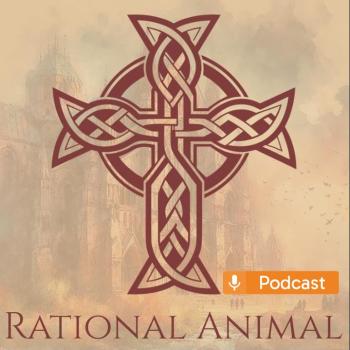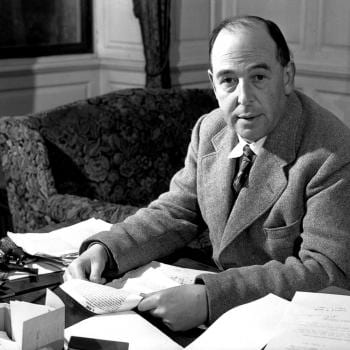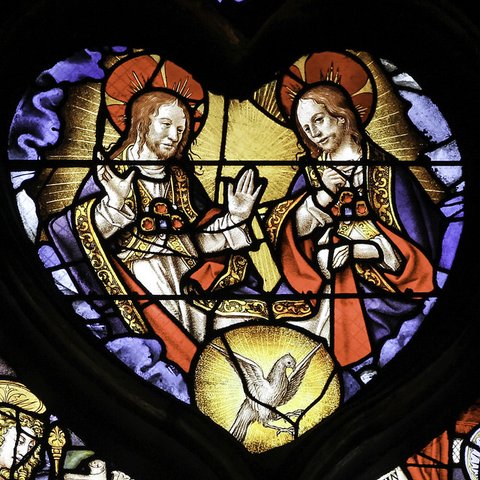With the Beatitudes as our identity card, we are called to live life “changed and transformed” in the Trinity.
Wednesday’s Magnificat had a meditation from Pseudo-Macarius, an Egyptian monk and hermit, that helps those of us who are not in the hermitage.
It began:
Our souls must be changed and transformed from the present state to a new one, to a divine nature, and to become new instead of old, that is, good and kind and faithful from being bitter and faithless. And thus, having become fit, we will be restored to the heavenly kingdom …
It continued:
All things are possible with God, as it happened in the case of the good thief. In a moment through faith he was converted and was restored to Paradise.
How can we — why would we — resist living our days as ones of thanksgiving and praise when we know this?
The good thief was granted mercy from our Lord even as He paid for our sins.
There is nothing, nowhere, God will not grant forgiveness for. We just need to go to Him in sorrow for our sins, wanting to be reconciled with our Creator and Savior.
Our monk continues:
The Lord came for this in order to change us and recreate us and make us, as it is written, “participators of the divine nature” (2 Pt 1:4), and to give to our soul a heavenly soul, that is, the Spirit of the Godhead leading us to every virtue so that we might be able to live eternal life. Therefore, may we believe with our whole heart his inexpressible promises, because “He is true that promised” (Heb 10:23).
The wedding feast of the Lamb. That’s where we are meant for. What else could we ever want?
And so we must let Him order our days in His peace. Pseudo-Macarius goes on:
We must love the Lord and always strive to live in all the virtues and to beseech assiduously and without ceasing in order to receive the promise of the Spirit totally and perfectly so that we may be brought to life even while we are still on this earth.
And he issues a caution:
For if in this world a person would not receive the sanctification of the Spirit through much faith and imploring, and be “made participator of the divine nature” and permeated by grace by which he can fulfill every commandment without blame and purely, he would not be made for the Kingdom of Heaven. Whatever good anyone has obtained here, that same, in that day, will be his life through the Father and the Son and the Holy Spirit forever.
With our fidelity to the Cross, with our commitment to live truly Catholic lives of prayer and discernment of the ways of the Divine Persons, we build the Kingdom of God here, and help those we encounter on the way to Heaven, through our encounter (encuentro!) with the Trinity — God the Father, Son, and Holy Spirit.
It’s so important — and maybe the run-up to Trinity Sunday is a good time to think about this — to have practical routines that help with prayer during the course of busy weeks. Do we wake up and pray? Do we give thanks to God? Do we read the Bible? Do we dip into the lives of the saints?
Magnificat is a good way to help with all of the above. If you don’t subscribe, you might consider doing so. It’s also a great gift. Beautiful, concise, exactly what one needs to keep at nourishing the soul day-by-day. It will help with consoling, directing, and challenging. It will help with staying on course.
(Full disclosure: I’ve done some work with the Magnificat Foundation, which is separate venture but part of the Magnificat family. I’ve been talking up — and addicted to — Magnificat long before that though.)
Also from Magnificat this week:
Every day offers a choice: what sort of reading, what sort of TV, what sort of conversation, what sort of friends will we choose to welcome into our home?
And from St. Paul writing to the Philippians (4:8):
Whatever is true, whatever is honorable, whatever is just, whatever is pure, whatever is lovely, whatever is gracious, if there is any excellence and if there is anything worthy of praise, think about these things.
We celebrated the feast of St. Barnabas this week. St. Barnabas, pray for us that we may be on fire with flame of the Holy Spirit as he and the first Apostles were!
Or as a #homilytweet (can we ever make it trend?) put it:
We pray we have the flame of the #HolySpirit and zeal of #Barnabas to spread the faith of Jesus in the world #homilytweet
— Kathryn Jean Lopez (@kathrynlopez) June 11, 2014















